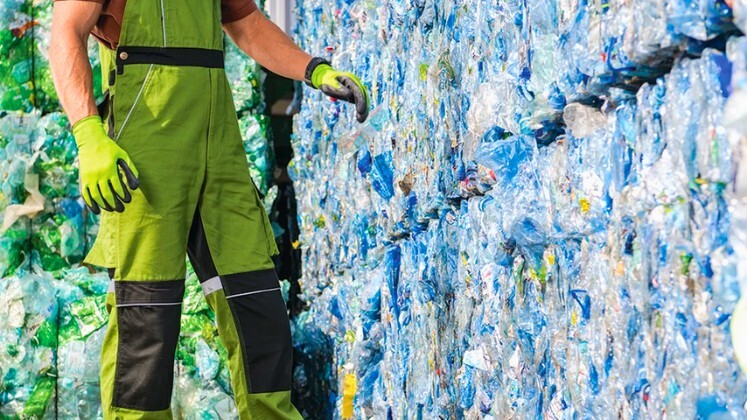
With assistance from Closed Loop Partners, Eunomia Research and Consulting and The Recycling Partnership, London-based Systemiq has released a new study that provides a detailed plan for moving the polyester textile and polyethylene terephthalate (PET) packaging sectors in the United States away from the linear, single-use paradigm and towards circular, low-waste and low-emission systems by 2040.
The Transforming PET Packaging and Textiles in the United States study comes after policy pronouncements, such as the Executive Order on Mobilising Federal Action on Plastic Pollution and the recent passing of California’s Responsible Textile Recovery Act of 2024. Additionally, according to Systemiq, five states—California, Colorado, Maine, Minnesota and Oregon—have implemented extended producer responsibility (EPR) rules for packaging and ten more are considering doing the same.
Systemiq claims that the same molecule is used to make PET packaging and polyester textiles, which are utilised in products like food trays, carpets, apparel and beverage bottles. Every year, American consumers use over 100 billion PET bottles and over 10 billion polyester clothes. According to the company, these materials account for 30 per cent of the textile and plastic packaging used in the United States. By 2040, PET/polyester usage will have increased 1.5 times if present trends continue, leading to 13 million metric tonnes of scrap being taken to landfills and burned each year. According to Systemiq, domestic PET/polyester production would result in GHG emissions by 2040 that are 2.5 times greater than what is required to satisfy U.S. emissions reduction targets.
The report highlights the “transformative potential” of ambitious and complementary circular economy strategies, such as cutting back on the use of unnecessary materials, increasing recycling through mechanical and depolymerisation technologies and scaling up container reuse and textile resale.
According to the study, by 2040, implementing these complementary measures could lead to significant environmental benefits, including a reduction of virgin PET/polyester consumption and scrap sent to landfills and incineration by half, a reduction of projected GHG emissions for packaging by about 60 per cent and an increase in recycling rates for PET packaging to 70 per cent (up from 23 per cent) and polyester textiles to 19 per cent (up from 1 per cent).
Furthermore, according to the report, a change in the PET packaging and polyester textiles sectors may result in the creation of 46,000 direct jobs in the United States and bring in US $ 4.9 billion annually for the country’s recycling sectors.






